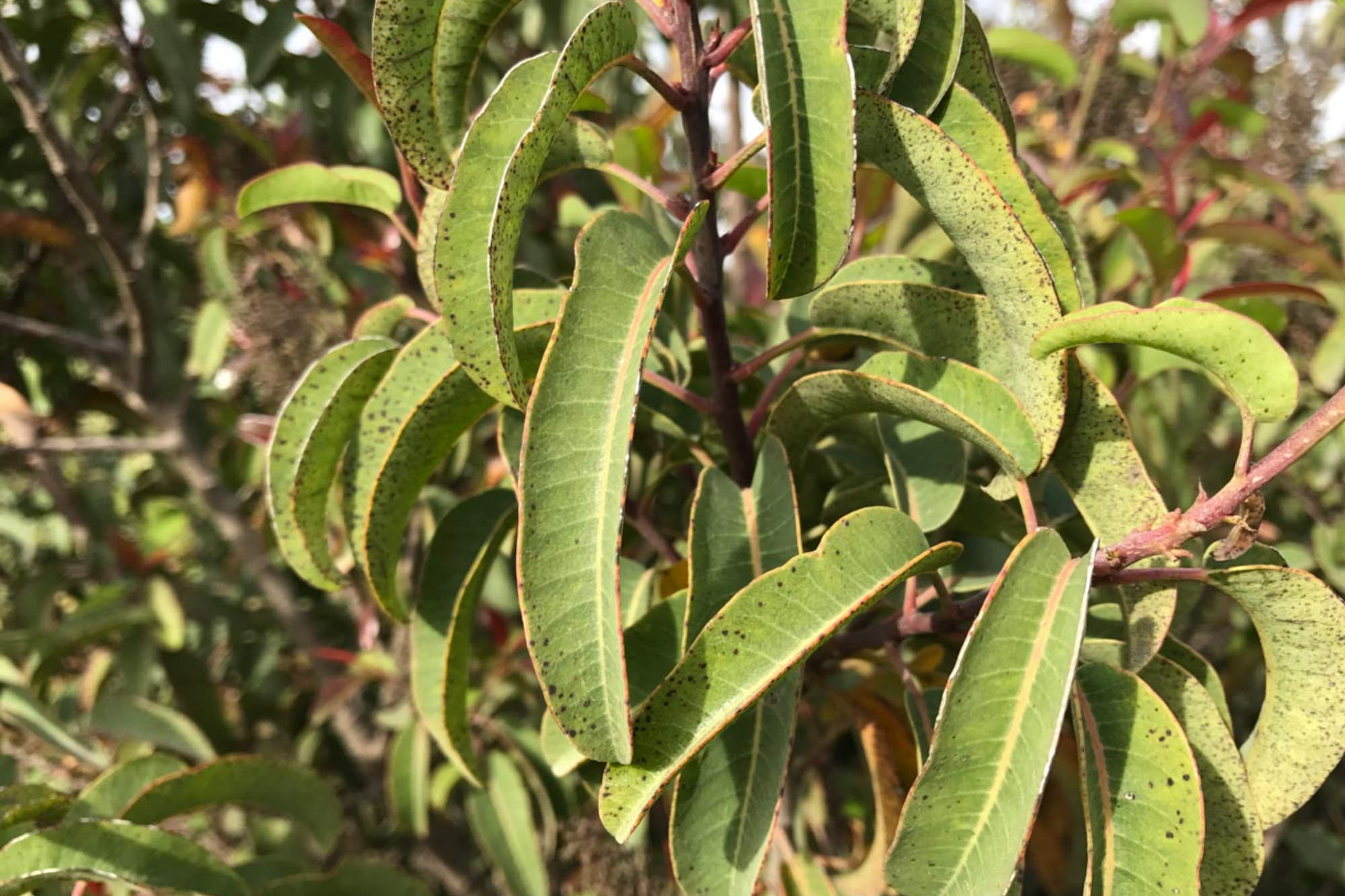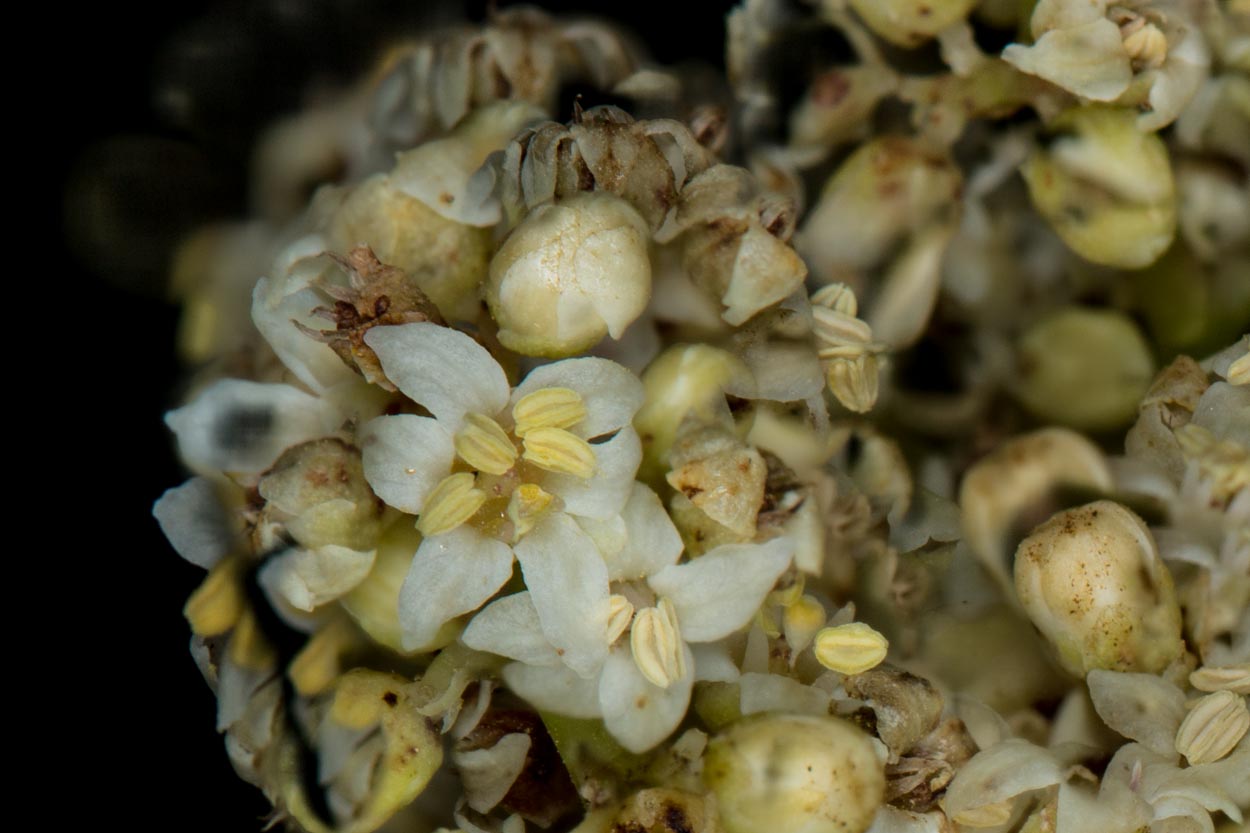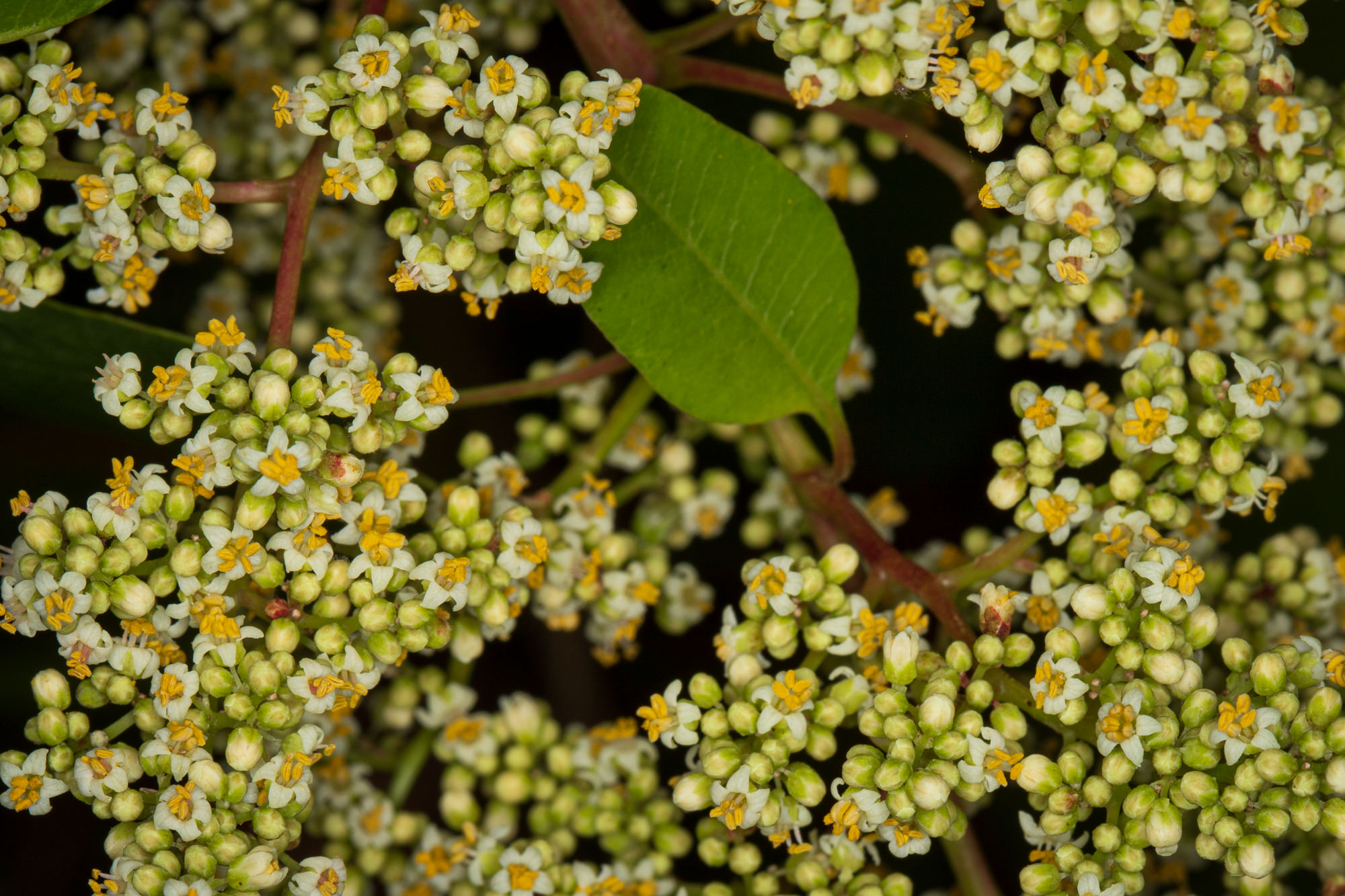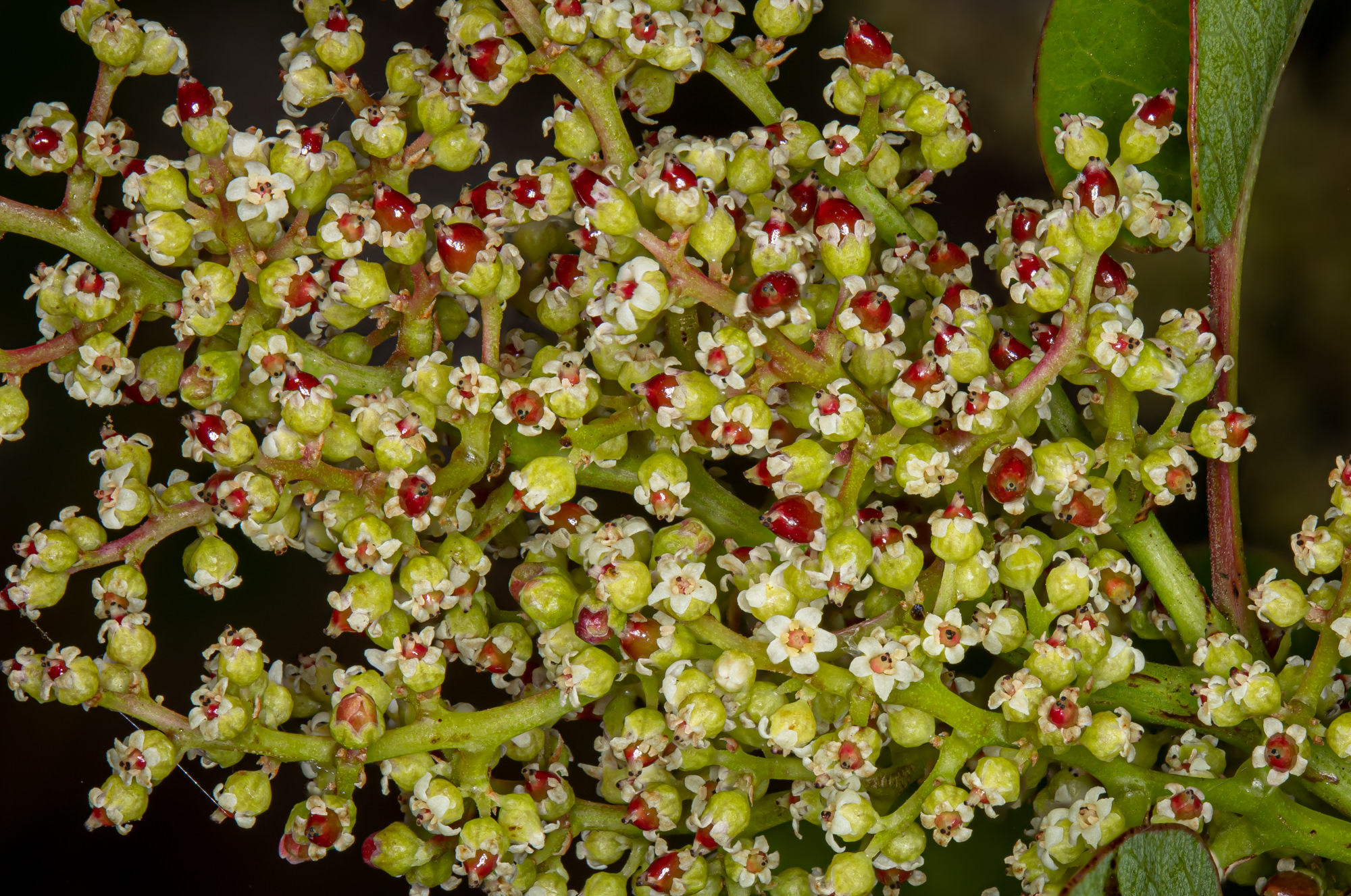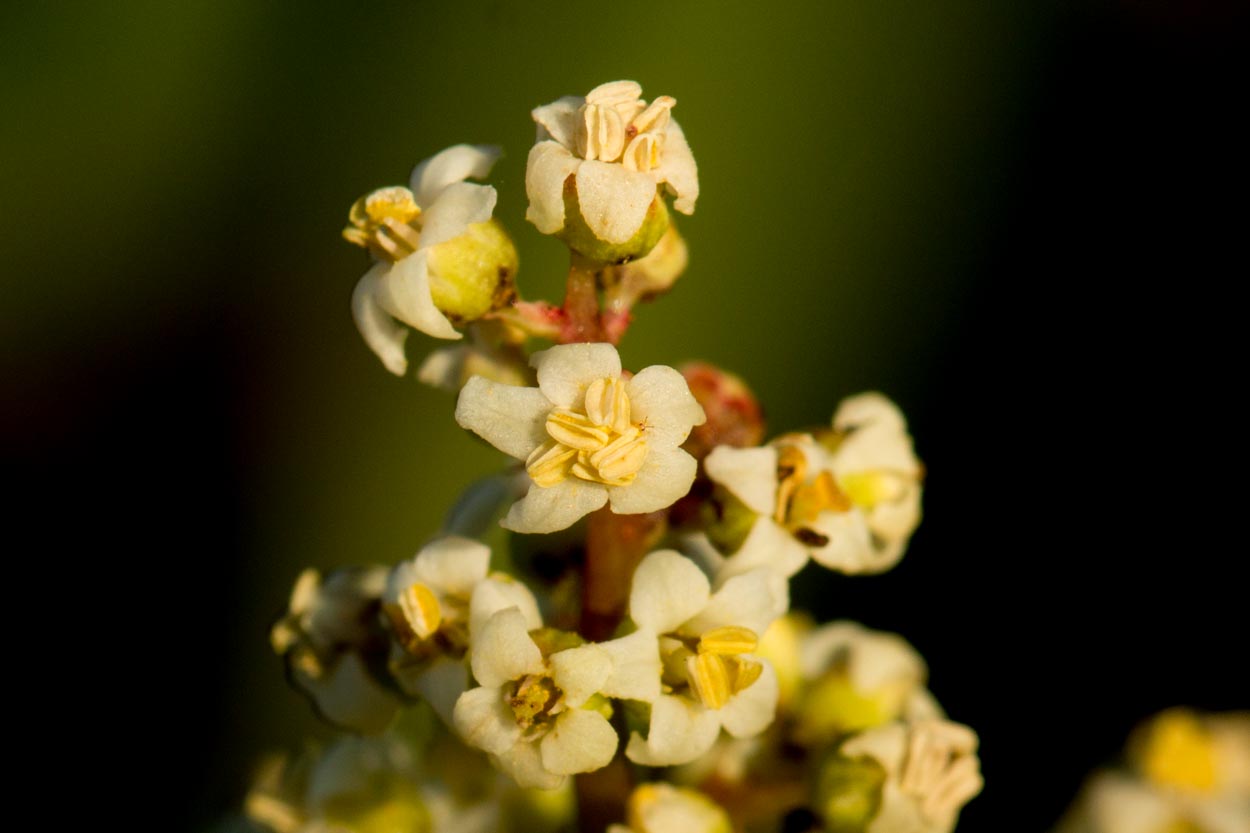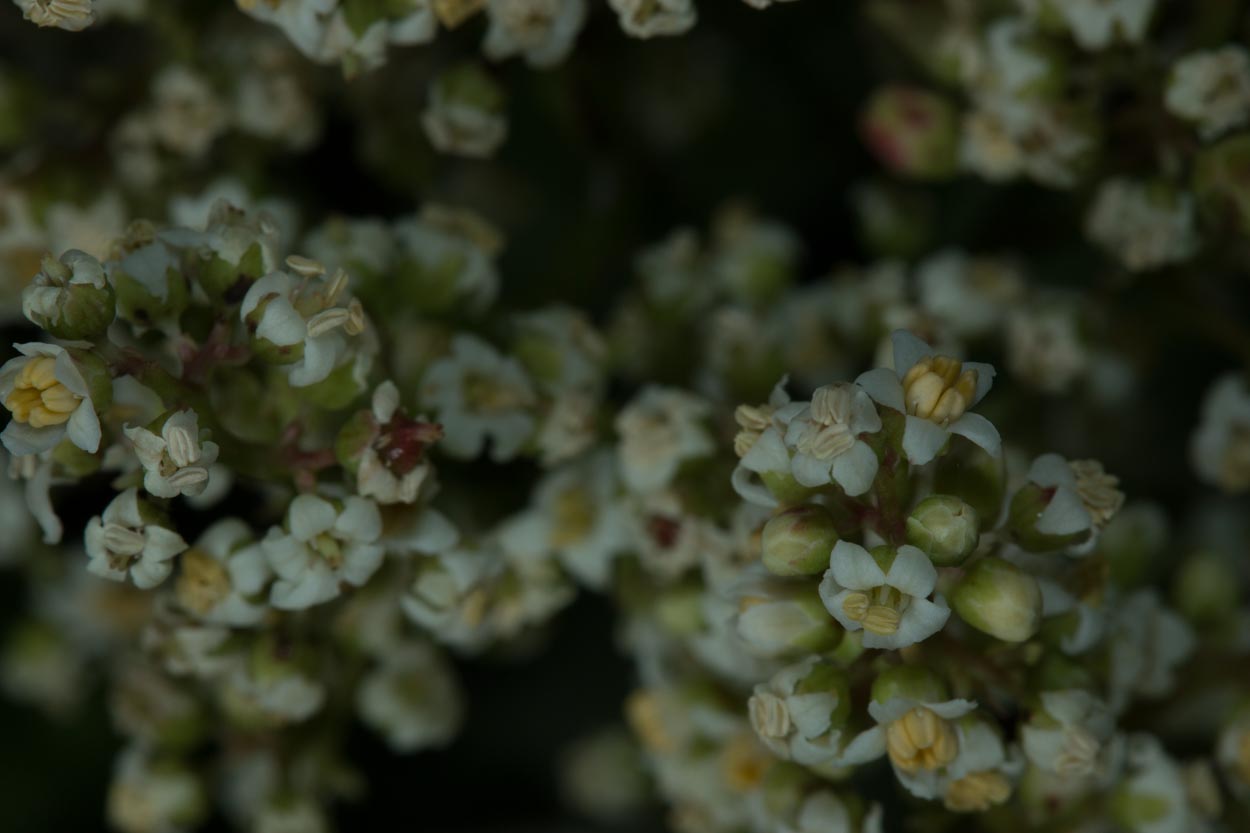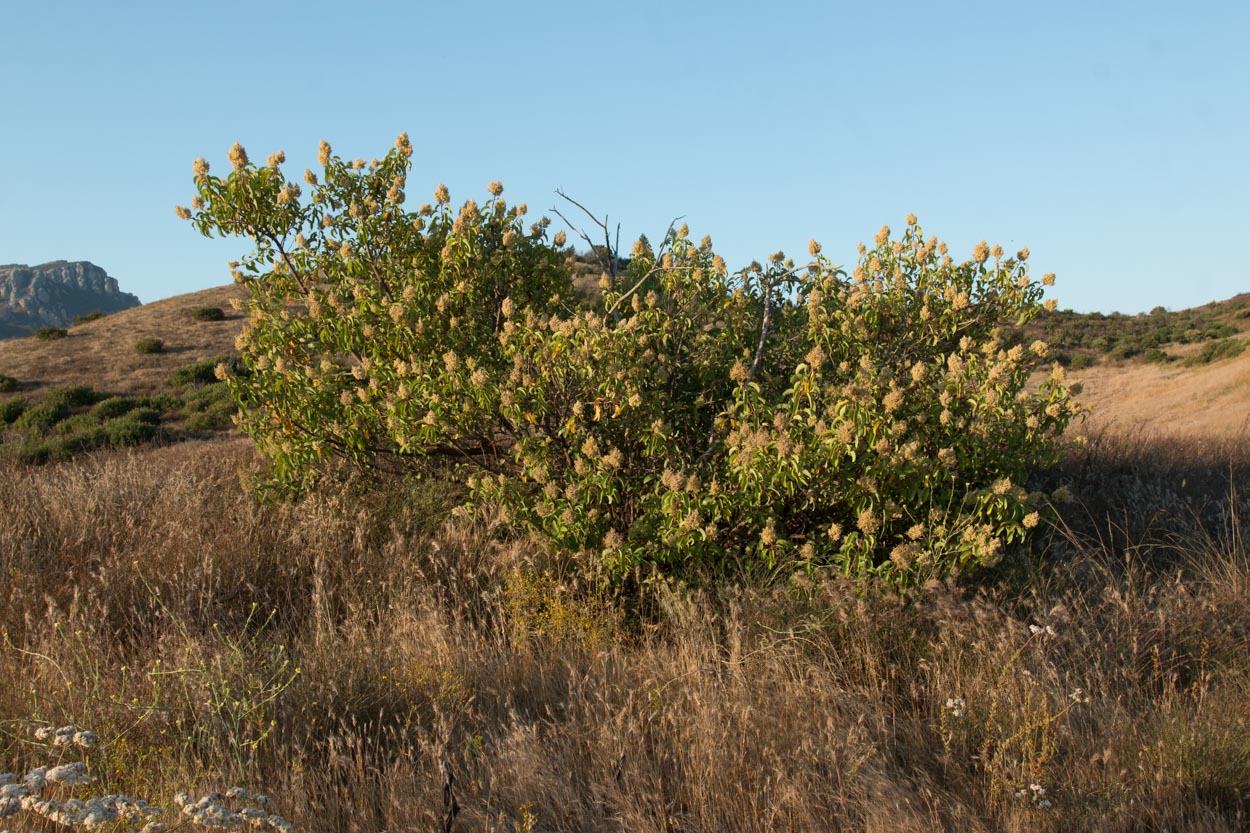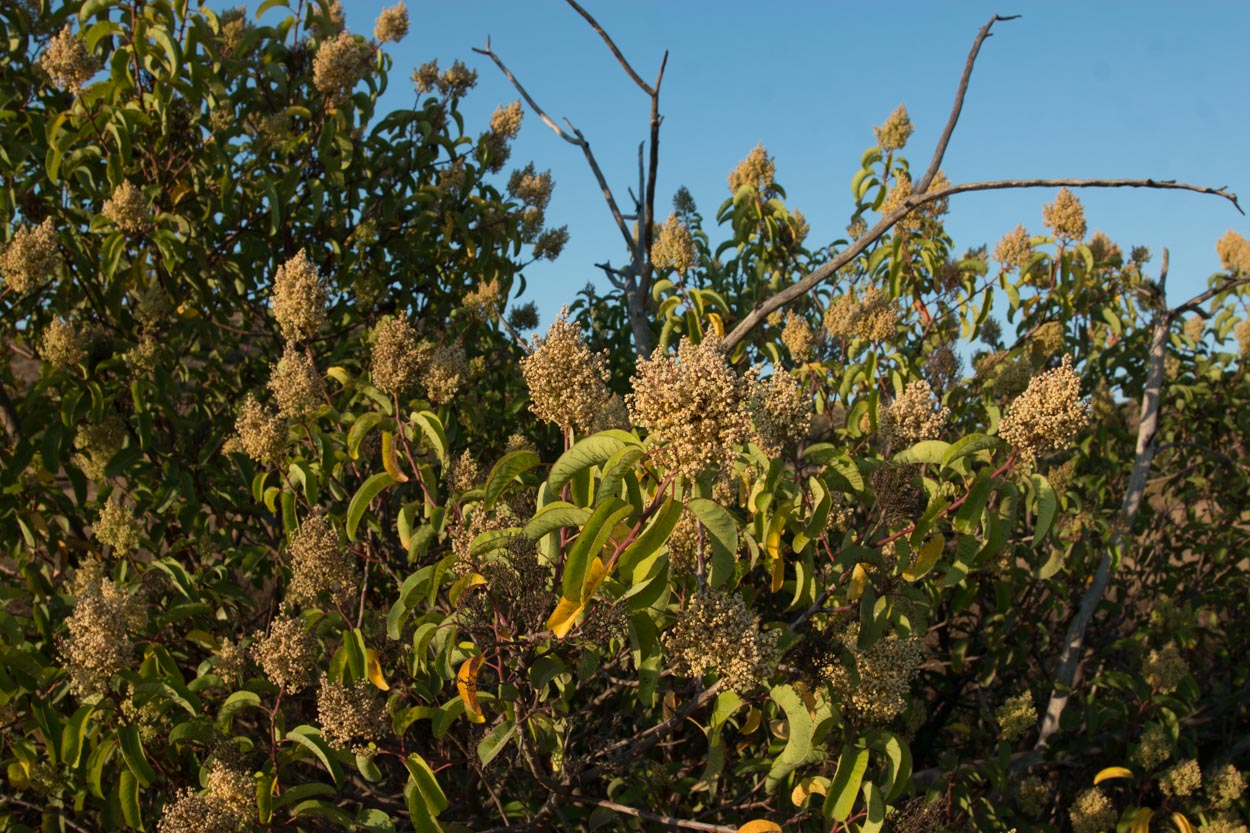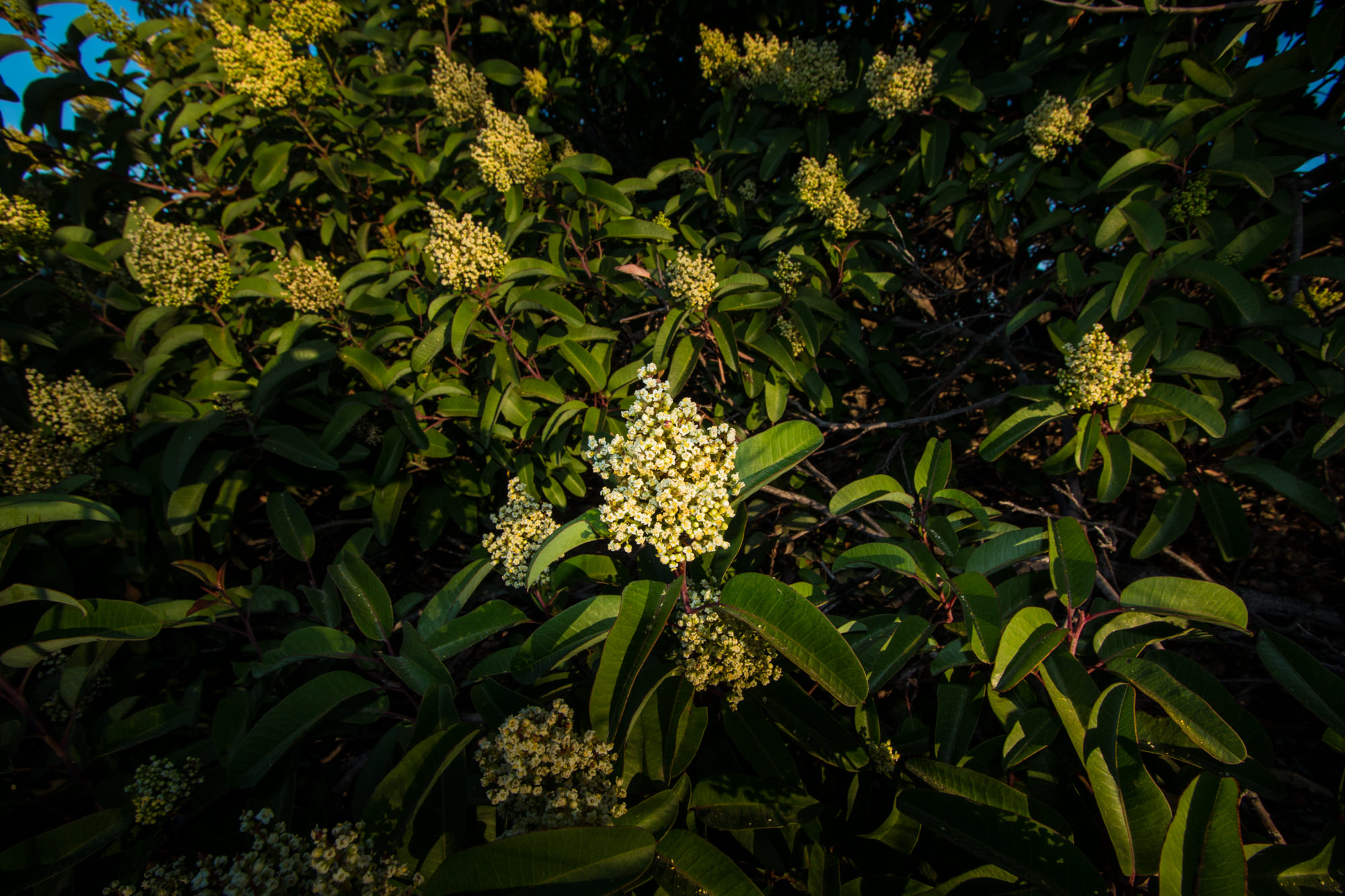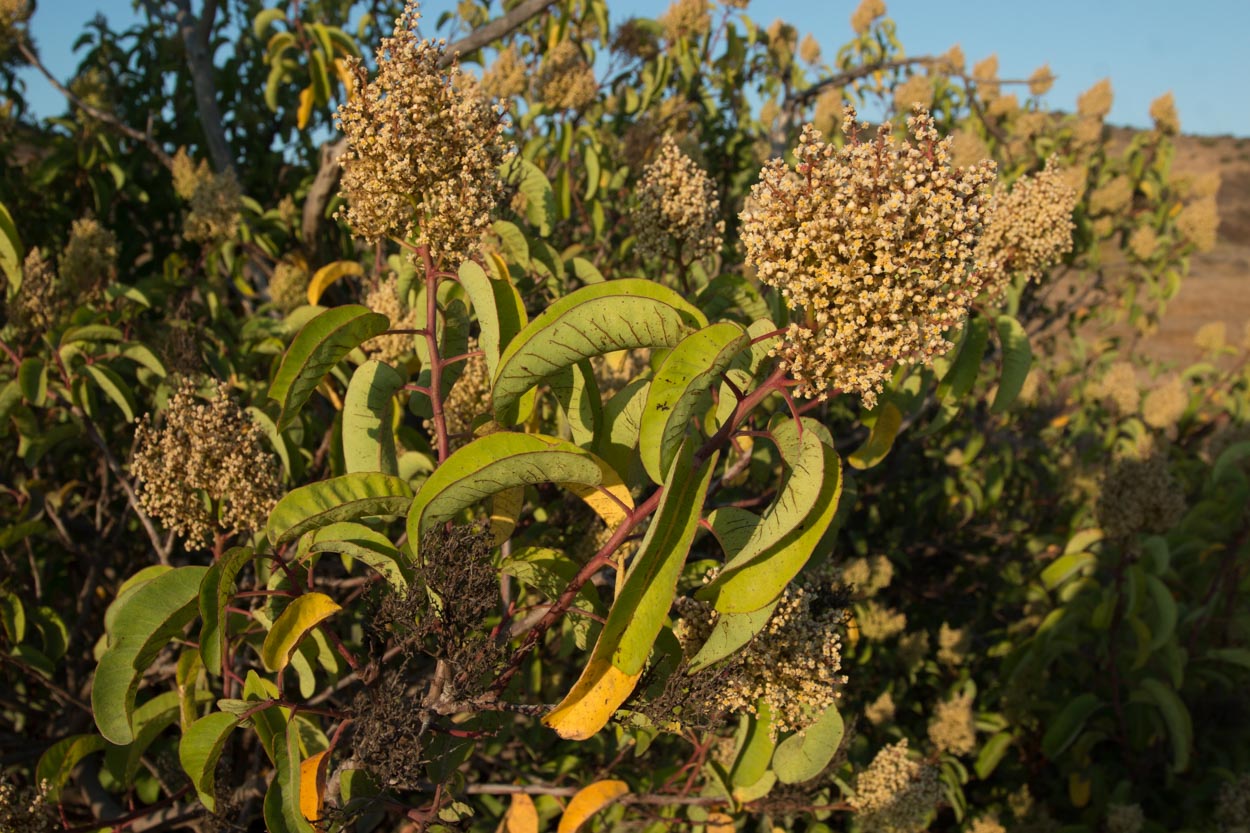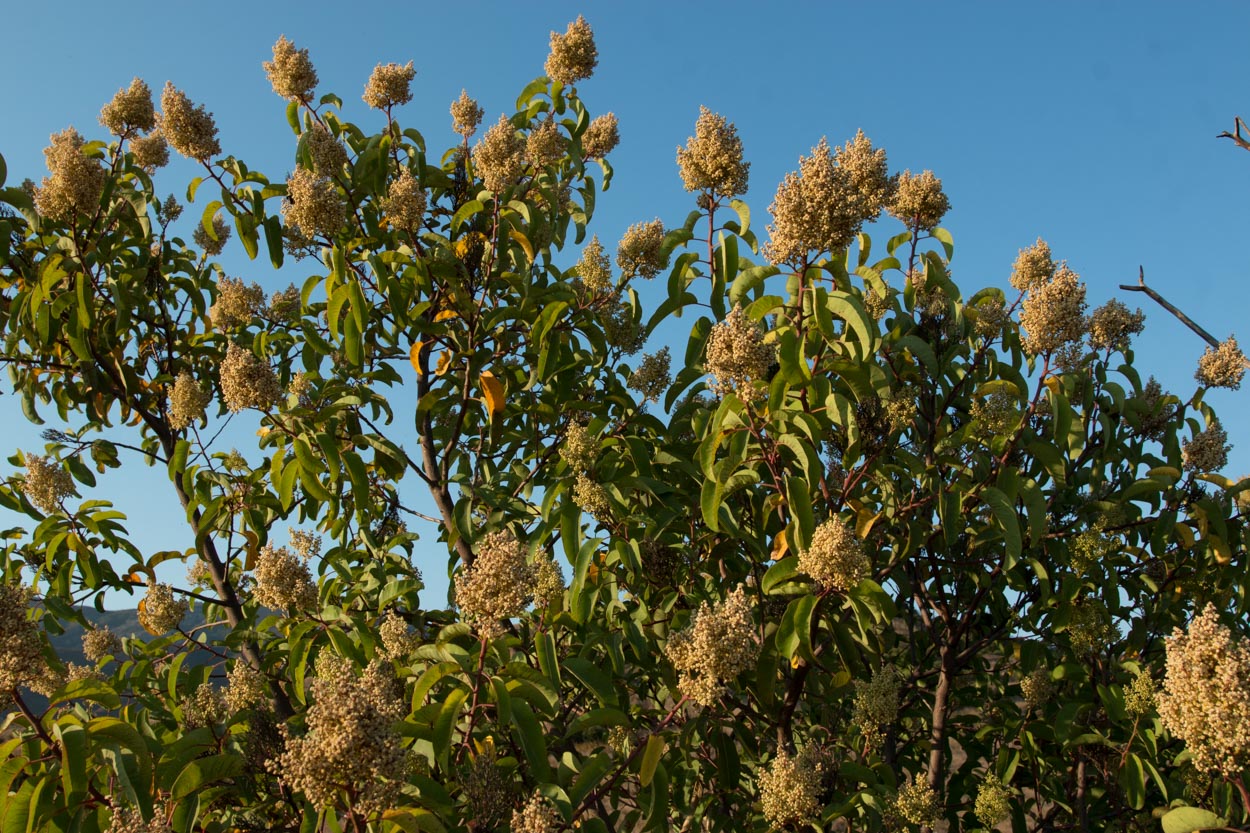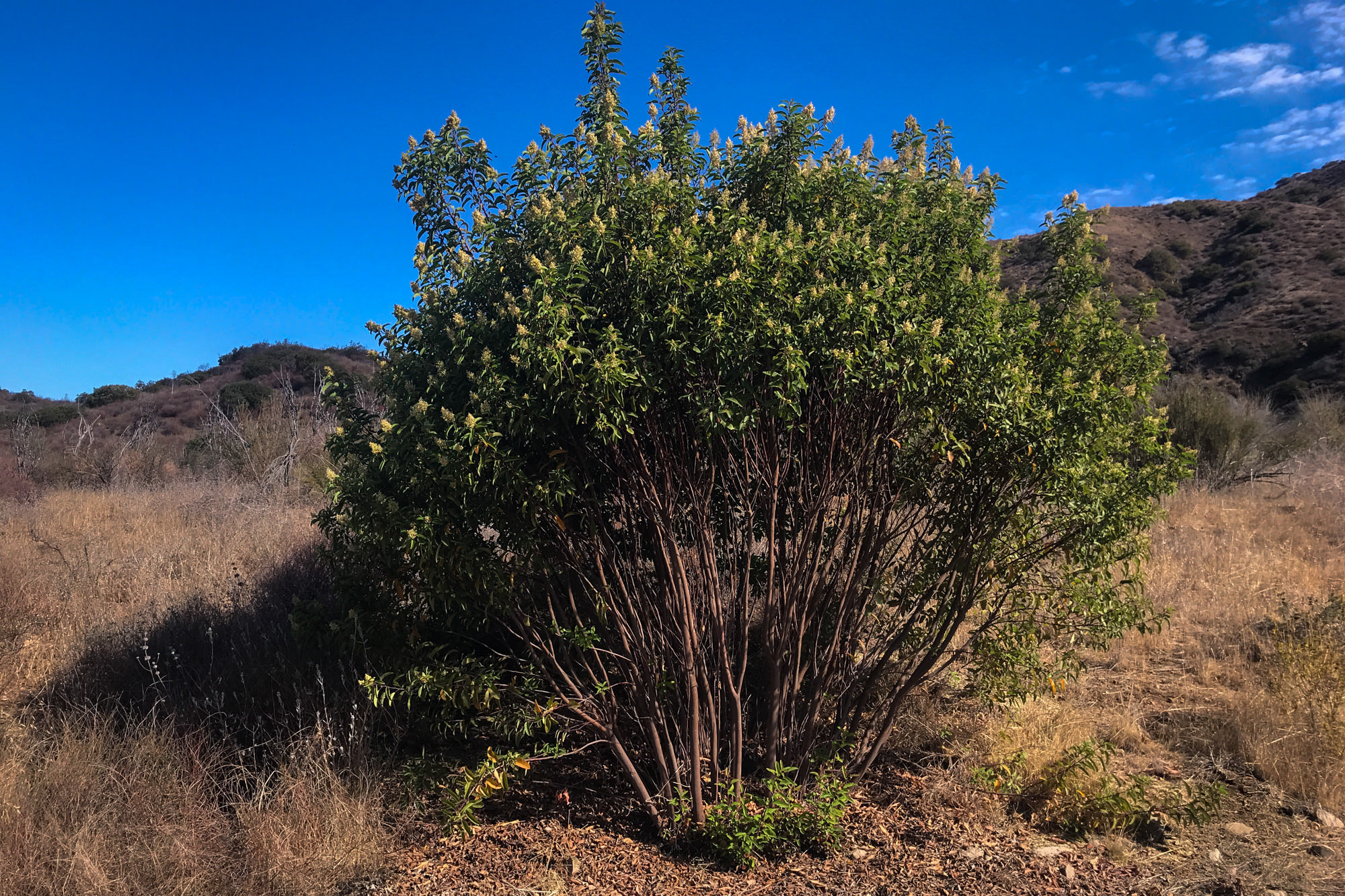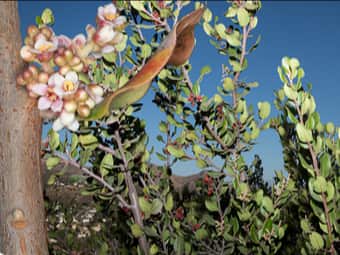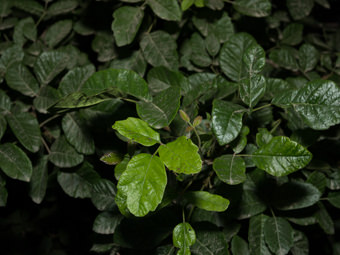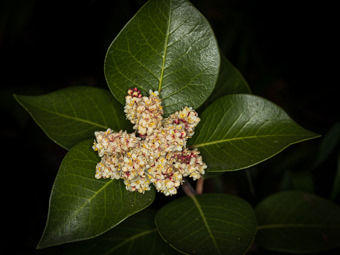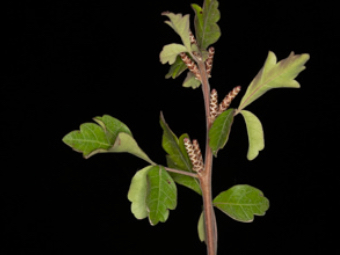Sumac
- Malosma laurina
| Common Name(s): | Sumac |
| Scientific Name: | Malosma laurina |
| Family: | Anacardiaceae (Sumac) |
| Plant Type: | Perennial |
| Size: | up to 10 feet |
| Habitat: | Chaparral |
| Blooms: | June to August |
| Fire Response: | Stump Sprout or Seed |
Laurel Sumac Malosma laurina is very ubiquitous in the Santa Monica Mountains, one of the predominant evergreen shrubs populating the hillsides throughout the year. It grows quickly and strong, forming a rounded shape, but may perish from a cold frost. However, after either frost or a fire, it is quick to resprout leaves and stems from its large underground burl (the photo at lower right is within a year after a fire).
Leaves on this plant are up to 6 inches long, leathery, lanceolate, folded and curved back (kind of like a taco), starting out red then turning to a bright green. Frequently the red color remains in the mature leaf's edges. Stems also start out red, then turn reddish-brown then sometimes gray as the plant matures. Flowering occurs in early summer primarily, with the terminal clusters of small cream-colored flowers quickly giving way to red berries with white seeds. The flower clusters persist on the plant well after the flowers and berries are spent.
Adaptations to fire:
- Aromatic oils to increase fire intensity
- seed coatings are cracked by the heat of the fire (allowing germination)
- leaf size and shape appear to burn in a way that causes interior branches to catch fire as well
- roots store photosynthate material and are utilized after the fire to re-sprout
- as mentionend above - deep leaf litter of flammable material
The genus name Malosma translates to "strong smell", refering to the aroma of the plant, especially its leaves when crushed. The species name laurina means "laurel-like".
Contributed by Liz Baumann; revised by George Sherman
Featured Plants in the Anacardiaceae (Sumac) Family:
Last modified: May 17 2024 08:24:06.
Number of Images: 13
Image Size Total: 5,529,042
References:
Wildflowers of the Santa Monica Mountains, by Milt McAuleyFlowering Plants: The Santa Monica Mountains, Coastal and Chaparral Regions of Southern California, by Nancy Dale
Chumash Ethnobotany: Plant Knowledge Among the Chumash People, by Jan Timbrook
Leaf Shapes Primer - Botanical Terms for Leaves: - Link

